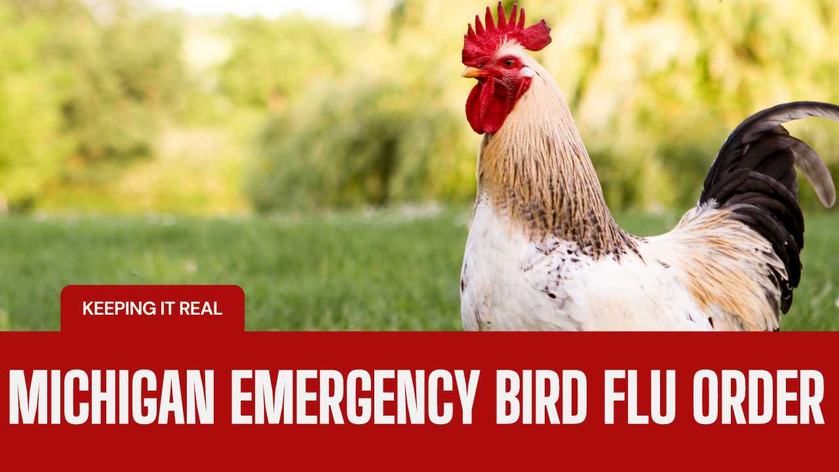LANSING, Mich. — Dr. Tim Boring, Director of the Michigan Department of Agriculture and Rural Development (MDARD), has issued a comprehensive emergency order. The directive, titled “HPAI Risk Reduction Response Order,” takes effect on Wednesday, May 8, 2024, and introduces stringent biosecurity measures for all dairy and commercial poultry operations across Michigan.
The order outlines several mandatory actions, including the appointment of biosecurity managers and the establishment of secure perimeters around facilities to control access. Enhanced cleaning and disinfection protocols at these access points are required, along with detailed logging of all entries and exits by vehicles and personnel.
Click below to support my independent journalism.
In an effort to curb the spread of the virus, the order also places strict restrictions on the exhibition of animals. It prohibits the display of lactating dairy cattle and all poultry until the state confirms no new cases of HPAI for 60 and 30 consecutive days, respectively.
“This national HPAI outbreak must be a top priority for all who work in agriculture,” stated Director Boring. “We’re taking aggressive action to protect both animal and public health and to help reduce the further spread of HPAI in Michigan.”
Click here to read the entire order.
State Veterinarian Dr. Nora Wineland and other officials emphasized the necessity of these measures to prevent the virus from reaching vulnerable animal populations. Meanwhile, Elizabeth Hertel, Director of the Michigan Department of Health and Human Services, reassured the public about the safety of the state’s dairy products. “Recent testing by the Food and Drug Administration has shown that consuming pasteurized dairy remains safe,” she confirmed.
The commercial milk supply remains unaffected thanks to rigorous health regulations and pasteurization standards, ensuring that there is no increased risk to consumer health.
The Michigan Allied Poultry Industries and the Michigan Association of Fairs and Exhibitions have expressed strong support for the MDARD’s leadership during this crisis. They anticipate that the biosecurity measures will not only safeguard animal health but also allow poultry exhibitors to return to fair activities once the situation improves.
CDC and state and local health departments monitor people exposed to infected cattle for 10 days after exposure. Between March 2024 and now, there have been
At least 220 people monitored
At least 30 persons tested for novel influenza A
One case of avian influenza A(H5N1) was identified
At a briefing last week, government health officials said they are preparing for a potential scenario of H5N1 jumping from animal to person — or person to person. The virus has taken off in dairy cows, infecting at least 36 herds across nine states, raising concerns that it could acquire mutations that would make it easier to spill over into humans.
Studies “suggest that the vaccines will offer good cross-protection against cattle outbreak viruses,” Demetre Daskalakis, director of the National Center for Immunization and Respiratory Diseases, said on the call Wednesday.
Both of the vaccine candidates are already in the nation’s stockpile in limited quantities, officials said in a previous interview.
The Centers for Disease Control and Prevention also said Wednesday that it is testing blood samples from people previously vaccinated with an influenza vaccine to see if it generates an immune response, although it didn’t say which vaccine




















